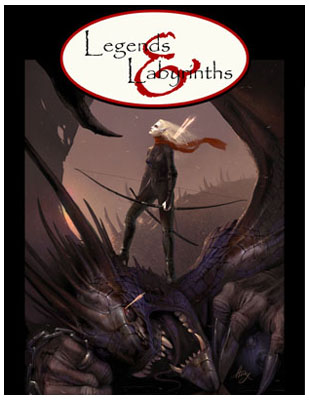 As I’ve mentioned previously, I’ll be appearing as Henry Bolingbroke in Shakespeare & Company’s production of Richard II through August 3rd. In approaching this role I naturally bore with me the experience of having seen the play several times in the past — most notably on the stage of the Guthrie Theater in 1990 with Charles Janasz playing the lead.
As I’ve mentioned previously, I’ll be appearing as Henry Bolingbroke in Shakespeare & Company’s production of Richard II through August 3rd. In approaching this role I naturally bore with me the experience of having seen the play several times in the past — most notably on the stage of the Guthrie Theater in 1990 with Charles Janasz playing the lead.
Based on these productions, I had largely embraced the modern scholastic tradiition, which (loosely speaking) holds the play to be about a philosophically-inclined god-king (Richard II) who is deposed by a usurping, forsworn bastard (Henry IV). Digging a bit deeper into the modern scholastic tradition reveals a common understanding in which Richard II, serving metaphorically as a symbol of traditional royalty in which the king rules by divine right, is replaced by Henry Bolingbroke, who serves as a symbol of modern royalty in which the king rules in the legacy of Machiavelli.
This is all well and good and, honestly, I was looking forward to playing Bolingbrooke’s bastardy right to the hilt.
But as I began to peel back the layers of the play and delve into the character, I actually found a very different Bolingbroke waiting for me in Shakespeare’s words.
THE PLOT
A quick plot summary for those less familiar with the play: At the beginning of the play, Bolingbroke accuses Mowbray (another noble) of treason and provides a list of specific charges to that effect. Mowbray accuses Bolingbroke of the same (but, notably, has no similar list of charges). The issue is supposed to be resolved through a trial by combat, but Richard II cancels the duel and instead banishes both of them.
While Bolingbroke is gone, his father — the Duke of Lancaster — dies. Richard II takes the opportunity to seize the duchy for himself, parcels it out to a variety of political sycophants, and uses the profits to fund a war in Ireland. Bolingbroke, enraged, returns to England. Richard II is deposed and Bolingbroke is crowned king as Henry IV. Richard is locked up in Pomfret Castle and there he is killed by one of Bolingbroke’s followers.
BOLINGBROKE’S POINT OF VIEW
My major revelation with Bolingbroke was simply this: He never says he wants the crown.
In fact, he says quite the opposite many, many times. When he first returns to England, for example (in Act II, Scene 3), he meets with his uncle, the Duke of York. York is loyal to Richard and accuses Bolingbroke of treason (because he has returned from his banishment before his appointed time). In response, Bolingbroke says this:
As I was banish’d, I was banish’d Hereford;
But as I come, I come for Lancaster.
And, noble uncle, I beseech your grace
Look on my wrongs with an indifferent eye:
You are my father, for methinks in you
I see old Gaunt alive; O, then, my father,
Will you permit that I shall stand condemn’d
A wandering vagabond; my rights and royalties
Pluck’d from my arms perforce and given away
To upstart unthrifts? Wherefore was I born?
If that my cousin king be King of England,
It must be granted I am Duke of Lancaster.
[…]
I am denied to sue my livery here,
And yet my letters-patents give me leave:
My father’s goods are all distrained and sold,
And these and all are all amiss employ’d.
What would you have me do? I am a subject
And I challenge law: attorneys are denied me;
And therefore, personally, I lay my claim
To my inheritance of free descent.
To my ear, that’s an impassioned and earnest plea. Bolingbroke acknowledges that he is wrong to return before the term of his banishment has ended… but he feels as if he has been forced to it. It’s not just that Richard has stolen his family’s fortune: With his father’s death Bolingbroke has become the Duke of Lancaster, and as a duke he has a sworn responsibility to his subjects. In addition, his own rights as a subject of King Richard have been violated.
This pattern continues. In Act III, Scene 3 — when Bolingbroke reaches the castle where Richard waits for him — he declares:
On both his knees doth kiss King Richard’s hand
And sends allegiance and true faith of heart
To his most royal person, hither come
Even at his feet to lay my arms and power,
Provided that my banishment repeal’d
And lands restored again be freely granted…
When he actually comes face-to-face with Richard, it’s Richard who keeps insisting that Bolingbroke has come to depose him. Bolingbroke answers him repeatedly: “My gracious lord, I come but for mine own.” and “So far be mine, my most redoubted lord, as my true service shall deserve your love.”
Nor is Bolingbroke the only saying it. Northumberland, Bolingbroke’s moster powerful ally, tells York:
The noble duke hath sworn his coming is
But for his own; and for the right of that
We all have strongly sworn to give him aid…
Most notably there is York himself. The moment when Richard first resigns his crown is not actually seen on stage, but when Richard later asks, “To do what service am I sent for hither?” York is the one who says:
To do that office of thine own good will
Which tired majesty did make thee offer,
The resignation of thy state and crown
To Henry Bolingbroke.
So even York, who has been established as Richard’s most faithful supporter, believes that Richard resigned the crown of his own will and that it was Richard who offered and not Bolingbroke who demanded it.
Now, admittedly, in most productions these lines are played for irony. Bolingbroke, dressed in a Nazi uniform, says, “Show fair duty to his majesty.” And the stormtroopers move in. “My gracious lord,” he says with mocking sarcasm dripping from his lips, “I come but for mine own.” Even York’s proclamation comes as he warily eyes the Glock pistols of his personal “guard”.
And that can certainly be a very effective way to play it. But it’s surprising that Shakespeare never drops the facade: There is never a moment when Bolingbroke — like a Richard III or Claudius or Iago — takes the opportunity to confess his knavery.
RICHARD’S POINT OF VIEW
But the larger objection is this: If Bolingbroke doesn’t want it, why does Richard give it?
Here we come to what I believe is the central dynamic of the play: The fundamental discontinuity between the world view of Bolingbroke and the world view of Richard.
Richard’s entire sense of identity is tied to the divine right of kings. Richard believes that, by right of birth, he is the chosen of god. And because of that, as King of England, he possesses a pope-like infallibility. For example (from Act III, Scene 3):
…we thought ourself thy lawful king.
And if we be, how dare they joints forget
To pay their awful duty to our presence?
If we be not, show us the hand of God
That hath dismissed us from our stewardship;
For well we know, no hand of blood and bone
Can gripe the sacred handle of our scepter…
Richard literally believes that not only does he hold the throne of England in stewardship for God himself, but that — as king — he is literally more than mortal.
So Bolingbroke comes back from banishment and he says, “Richard, you made a mistake. You shouldn’t have banished me and you shouldn’t have stolen my inheritance. All I’m asking is that you repeal the banishment and give me my lands back.”
From Bolingbroke’s point of view, this is perfectly reasonable. Unfortunately, there’s a problem: Richard believes that he’s divine and infallible. To Richard, that’s what being king means: If you’re a king, you’re divine and infallible.
But if you’re infallible, you can’t be wrong. So when Bolingbroke says, “You made a mistake.” What Richard hears is, “You’re not king.”
Which is why you get dialogue like this (Act III, Scene 3):
BOLINGBROKE: My gracious lord, I come but for mine own.
RICHARD: Your own is yours, and I am yours, and all.
BOLINGBROKE: So far by mine, my most redoubted lord,
As my true service shall deserve your love.
RICHARD: Well you deserve: they well deserve to have,
That know the strong’st and surest way to get.
That entire exchange is literally two people talking past each other. Bolingbroke keeps saying, “No, seriously, I’m just here to get my inheritance.” But what Richard hears is, “You’re not king!”
Bolingbroke, unwittingly, throws Richard’s entire sense of self into doubt and confusion. Take, for example, the conclusion of the famous “let us sit upon the ground and tell sad stories of the death of kings” speech:
Cover your heads and mock not flesh and blood
With solemn reverence: throw away respect,
Tradition, form and ceremonious duty,
For you have but mistook me all this while:
I live with bread like you, feel want,
Taste grief, need friends: subjected thus,
How can you say to me, I am a king?
Richard never surrenders the idea that a king is supposed to be something more than mortal. And so, when he is forced to face his own mortality, he usurps and (ultimately) destroys himself.
THE DESTRUCTION OF GREAT MEN
Viewed through this lens, Richard II becomes the story of how two great men end up destroying each other.
Richard’s destruction is self-evident — he is deposed and killed.
Bolingbroke’s destruction, on the other hand, is a slightly subtler affair. By the end of the play he has been crowned king and, to all appearances, proven completely triumphant. But that triumph is, ultimately, tainted: In the process of achieving it, Bolingbroke has been pushed inexorably into a state of self-immolating sin.
From Richard’s point of view, Bolingbroke has usurped not only his crown but his very identity:
… I have no name, no title,
No, not that name was given me at the font,
But ’tis usurp’d. Alack the heavy day,
That I have worn so many winters out,
And know not now what name to call myself!
From Bolingbroke’s point of view, Richard has forced him to become a forsworn usurper.
And it affects him deeply. In Act V, when his cousin Aumerle is caught in a traitorous plot, the Duchess of York pleads for her son’s life. Bolingbroke responds, “I pardon him, as God shall pardon me.”
Richard’s death itself becomes a microcosm of Bolingbroke’s despair: The deposition scene in which Richard “undoes himself” is fairly horrifying for Bolingbroke. Richard cedes the throne to Bolingbroke, but Richard’s own struggles with identity make it anything but clear to the assembled nobles… which means that rebellion could still be raised in Richard’s name. Richard has become a “living fear” for Bolingbroke, who says as much: “Have I no friend who will rid me of this living fear?”
Exton, hearing this, convinces himself that Bolingbroke has given him a command to kill Richard. He does so and brings the body before Bolingbroke to receive his reward. Bolingbroke is horrified:
BOLINGBROKE: Exton, I thank thee not; for thou hast wrought
A deed of slander with thy fatal hand
Upon my head and all this famous land.
EXTON: From your own mouth, my lord, did I this deed.
BOLINGBROKE: They love not poison that do poison need,
Nor do I thee: though I did wish him dead,
I hate the murderer, love him murdered.
The guilt of conscience take thou for thy labour,
But neither my good word nor princely favour:
With Cain go wander through shades of night,
And never show thy head by day nor light.
Lords, I protest, my soul is full of woe,
That blood should sprinkle me to make me grow:
Come, mourn with me for that I do lament,
And put on sullen black incontinent:
I’ll make a voyage to the Holy Land,
To wash this blood off from my guilty hand:
March sadly after; grace my mournings here;
In weeping after this untimely bier.
And, again, these are lines which can be spoken with irony and a two-faced tongue. “My goodness, Exton! I can’t believe you would have done such thing! I am shocked — shocked! — to discover that there is murder going on in this establishment!”
But how much more powerful is it if Bolingbroke is speaking from his heart? If he does, in fact, feel the heavy weight of woe and guilt and sin? If he is trapped between relief because his living fear is dead and horror that it was done in his name? If this speech — which is the last speech of the play — is not just political posturing, but the sound of a man’s soul being ripped to shreds?
I’ll admit that I have something of a soft spot for pathos, but I find this twinned tragedy — the drama of polar opposites annihilating each other — far more interesting than the story of a good king and a usurping bad guy (particularly since Shakespeare supplies Richard with more than enough faults to call into serious question his status as a “good king”). Watching the play unfold with this dynamic is like watching the interaction of matter and anti-matter in slow motion.




 As I’ve
As I’ve 









